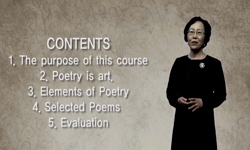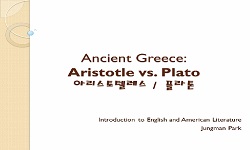For all ages, sympathy has been emphasized as the source of human morality, sociality, and culture. The science of sympathy made a breakthrough when the Giacomo Rizzolatti team in Italy revealed that humans have mirror neuron system, a neural mechanis...
http://chineseinput.net/에서 pinyin(병음)방식으로 중국어를 변환할 수 있습니다.
변환된 중국어를 복사하여 사용하시면 됩니다.
- 中文 을 입력하시려면 zhongwen을 입력하시고 space를누르시면됩니다.
- 北京 을 입력하시려면 beijing을 입력하시고 space를 누르시면 됩니다.

거울 뉴런과 문학 2: 쿳시의 『엘리자베스 코스텔로』에 나타난 공감의 인지신경과학과 그 윤리적 함의 = Mirror Neurons and Literature 2: Cognitive Neuroscience of Sympathy and Its Ethical Implications in J. M. Coetzee’s Elizabeth Costello
한글로보기https://www.riss.kr/link?id=A108226910
-
저자
백진 (고려대학교 영미문화연구소)

- 발행기관
- 학술지명
- 권호사항
-
발행연도
2021
-
작성언어
Korean
-
주제어
거울 뉴런 ; 문학 ; 공감 ; 인지신경과학 ; 윤리 ; 쿳시 ; 『엘리자베스 코스텔로』 ; Mirror Neurons ; Literature ; Sympathy ; Cognitive Neuroscience ; Ethics ; J ; M. Coetzee ; Elizabeth Costello
-
등재정보
KCI등재
-
자료형태
학술저널
- 발행기관 URL
-
수록면
99-121(23쪽)
-
KCI 피인용횟수
0
- 제공처
- 소장기관
-
0
상세조회 -
0
다운로드
부가정보
다국어 초록 (Multilingual Abstract)
For all ages, sympathy has been emphasized as the source of human morality, sociality, and culture. The science of sympathy made a breakthrough when the Giacomo Rizzolatti team in Italy revealed that humans have mirror neuron system, a neural mechanism that enables us to read other people’s minds and feel sympathy. Through neuroscientific research on “mirror neuron,” which is a neural basis of sympathy, and cognitive scientific research that explains the work of the mind as “embodied” cognition, this paper aims to examine the principles of sympathy and its ethical implications in J. M. Coetzee’s Elizabeth Costello (2003). Costello, the main character in this work, suggests “sympathetic imagination” as the source of our ethical behavior and asserts that there are no limits to it. However, the fact that (the silenced or animal) others do not have (human) languages symbolizes in itself an absolute limit to sympathetic imagination. This limitation suggests the limitation in rational reasoning. It reflects a cognitive neuroscientific perspective: Human beings’ autonomous ability of reasoning, which western classical philosophy emphasized as an element that distinguishes humans from animals, has, in fact, developed as a form of animalistic reason based on physical ability―in other words, the reason is something generated and refined through sensory and motor systems of the human brain and body. In this work, Costello can only sympathize with the pains of others through “embodied” language and “embodied” experience. In short, Elizabeth Costello proved the possibility and usefulness of cognitive neuroscience in literary interpretation by manifesting the leap of sympathetic imagination through an unconscious pathway called mirror neuron and its ethical potential.
참고문헌 (Reference)
1 전소영, "타자로서의 동물: 쿳시의 소설을 중심으로" 한국동서비교문학학회 (21) : 157-172, 2009
2 나익주, "조지 레이코프" 커뮤니케이션북스 2017
3 브라이트하우프트, 프리츠, "나도 그렇게 생각한다: 공감의 두 얼굴" 소소의 책 2019
4 에번스, 딜런, "감정: 감정의 과학" 이소출판사 2002
5 전소영, "『철의 시대』: 무조건적 환대의 가능성" 한국동서비교문학학회 (23) : 253-271, 2010
6 손영주, "“입증할 수 없는 것”으로부터 배우기 —쿳시의 『엘리자베스 코스텔로』" 한국현대영미소설학회 16 (16): 153-184, 2009
7 Nussbaum, Martha Craven, "Upheavals of Thought: The Intelligence of Emotions" Cambridge UP 2005
8 Hume, David, "Treatise of Human Nature: A Critical Edition" Oxford UP 2007
9 Gallese, V., "The “Shared Manifold” Hypothesis: From Mirror Neurons to Empathy" 8 : 33-50, 2001
10 Fauconnier, Gilles, "The Way We Think: Conceptual Blending and the Mind’s hidden Complexities" Basic Books 2002
1 전소영, "타자로서의 동물: 쿳시의 소설을 중심으로" 한국동서비교문학학회 (21) : 157-172, 2009
2 나익주, "조지 레이코프" 커뮤니케이션북스 2017
3 브라이트하우프트, 프리츠, "나도 그렇게 생각한다: 공감의 두 얼굴" 소소의 책 2019
4 에번스, 딜런, "감정: 감정의 과학" 이소출판사 2002
5 전소영, "『철의 시대』: 무조건적 환대의 가능성" 한국동서비교문학학회 (23) : 253-271, 2010
6 손영주, "“입증할 수 없는 것”으로부터 배우기 —쿳시의 『엘리자베스 코스텔로』" 한국현대영미소설학회 16 (16): 153-184, 2009
7 Nussbaum, Martha Craven, "Upheavals of Thought: The Intelligence of Emotions" Cambridge UP 2005
8 Hume, David, "Treatise of Human Nature: A Critical Edition" Oxford UP 2007
9 Gallese, V., "The “Shared Manifold” Hypothesis: From Mirror Neurons to Empathy" 8 : 33-50, 2001
10 Fauconnier, Gilles, "The Way We Think: Conceptual Blending and the Mind’s hidden Complexities" Basic Books 2002
11 Smith, Adam, "The Theory of Moral Sentiments" Cambridge UP 2002
12 Lakoff, George, "The Mind: Leading Scientists Explore the Brain, Memory, Personality, and Happiness" Harpe Perennial 11-30, 2011
13 Ramachandran, V. S., "The Mind" Harpe Perennial 101-112, 2011
14 Ramachandran, V. S., "The Mind" Harpe Perennial 147-152, 2011
15 Gutman, Amy, "The Lives of Animals" Princeton UP 2001
16 Gazzaniga, Michael S., "The Ethical Brain" Dana Press 2005
17 Rifkin, Jeremy, "The Empathic Civilization: The Race to Global Consciousness in a World in Crisis" Penguin 2009
18 Thagard, Paul, "The Brain and the Meaning of Life" Princeton UP 2010
19 Schopenhauer, Arthur, "The Basis of Morality" Swan Sonnenschein & Co 1903
20 Spinoza, Benedictus de, "Spinoza, Complete Works" Hackett Pub 2002
21 Goleman, Daniel, "Social Intelligence: The New Science of Human Relationships" Bantam 2006
22 MacFarlane, Elizabeth, "Reading Coetzee" Rodopi 2013
23 Nussbaum, Martha Craven, "Poetic Justice: The Literary Imagination and Public Life" Beacon Press 1995
24 Lakoff, George, "Philosophy in the Flesh: The Embodied Mind and its Challenge to Western Thought" Basic Books 1999
25 Nussbaum, Martha Craven, "Not for Profit: Why Democracy Needs the Humanities" Princeton UP 2010
26 Johnson, Mark, "Moral Imagination: Implications of Cognitive Science for Ethics" University of Chicago Press 1993
27 Rizzolatti, Giacomo, "Mirrors in the Brain: How Our Minds Share Actions and Emotions" Oxford UP 2006
28 Lakoff, George, "Metaphors We Live By" U of Chicago P 2003
29 Durrant, Sam, "J. M. Coetzee and the Idea of the Public Intellectual" Ohio UP 118-134, 2006
30 De Waal, F. B. M., "Good Natured: The Origins of Right and Wrong in Humans and Other Animals" Harvard UP 1996
31 Coetzee, J. M., "Elizabeth Costello: Eight Lessons" Penguin Books 2003
동일학술지(권/호) 다른 논문
-
Suitability of Dialogue Theory for Translation
- 한국동서비교문학학회
- Li Li
- 2021
- KCI등재
-
포스트아포칼립스 시대의 인간 조건 재고: 『오릭스와 크레이크』를 중심으로 살펴본 혐오와 수치심
- 한국동서비교문학학회
- 김혜윤
- 2021
- KCI등재
-
가능성으로서의 트라우마: 윌리엄 워즈워스의 『 허물어진 오두막』과 이창동의 <박하사탕> 함께 읽기
- 한국동서비교문학학회
- 강희원
- 2021
- KCI등재
-
<킬링 디어>에 나타난 폭력의 구조: 희생양과 보복적 정의
- 한국동서비교문학학회
- 오현숙
- 2021
- KCI등재
분석정보
인용정보 인용지수 설명보기
학술지 이력
| 연월일 | 이력구분 | 이력상세 | 등재구분 |
|---|---|---|---|
| 2027 | 평가예정 | 재인증평가 신청대상 (재인증) | |
| 2021-01-01 | 평가 | 등재학술지 유지 (재인증) |  |
| 2018-01-01 | 평가 | 등재학술지 유지 (등재유지) |  |
| 2015-01-01 | 평가 | 등재학술지 유지 (등재유지) |  |
| 2011-01-01 | 평가 | 등재학술지 유지 (등재유지) |  |
| 2009-01-01 | 평가 | 등재학술지 유지 (등재유지) |  |
| 2006-01-01 | 평가 | 등재학술지 선정 (등재후보2차) |  |
| 2005-01-01 | 평가 | 등재후보 1차 PASS (등재후보1차) |  |
| 2003-07-01 | 평가 | 등재후보학술지 선정 (신규평가) |  |
학술지 인용정보
| 기준연도 | WOS-KCI 통합IF(2년) | KCIF(2년) | KCIF(3년) |
|---|---|---|---|
| 2016 | 0.56 | 0.56 | 0.55 |
| KCIF(4년) | KCIF(5년) | 중심성지수(3년) | 즉시성지수 |
| 0.5 | 0.45 | 1.007 | 0.18 |




 KCI
KCI DBpia
DBpia







